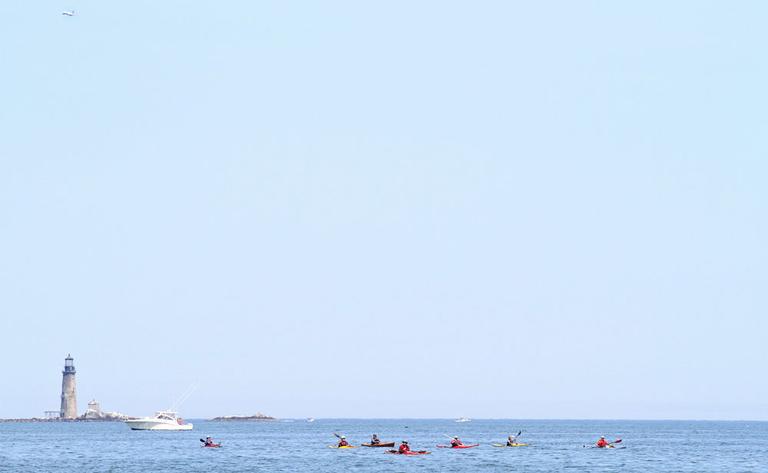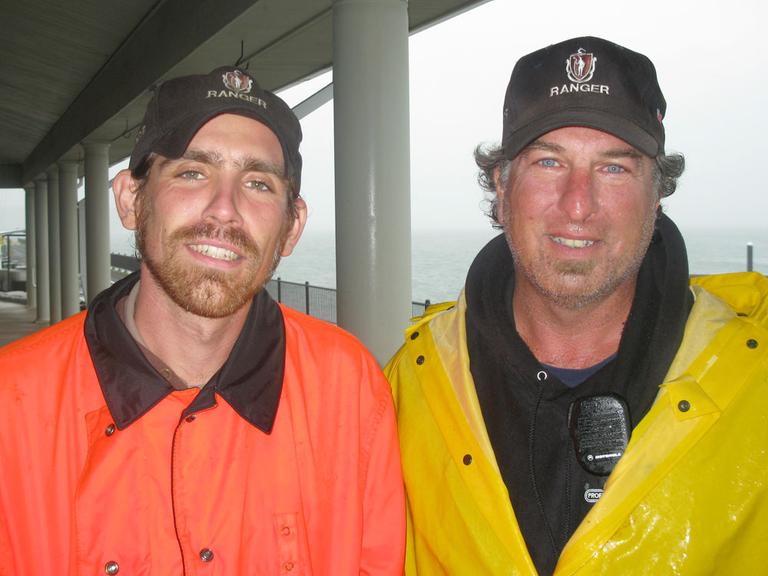Advertisement
Looking Out: Global Warming Tops Harbor Challenges
ResumeIn this 10th and final installment of our summer series, "Looking Out: A New View Of Boston Harbor," WBUR looks at the harbor's future and the challenges it faces.

The big challenge for Boston Harbor is global warming. One report finds that of all the cities in the United States, only three — Miami, New York and New Orleans — are at greater risk of increasing storm surges than Boston.
"This is a really serious matter," said Pat Brandes, the executive director of the Barr Foundation. "The harbor is of course the gateway to these storms, and the surges, so there are all kinds of plans being dreamed up at the moment of big gates being put across the islands to protect us from these kinds of storm surges. The islands could be part of the solution. The islands could also be submerged."
To save the islands from being submerged, the Barr Foundation made a tough decision. It has been one of the biggest supporters of programs to restore Boston Harbor and to get people to enjoy it — everything from Outward Bound on Thomson Island to bringing fish back to the Neponset River. But this year, the foundation decided to focus its grants on what it sees as the biggest threat to the harbor and the city of Boston: global warming.
"The change in priorities at the foundation will produce a gap in funding that many groups have been depending on for their programming and activities on the harbor," said Peter Shelley, who led the Conservation Law Foundation's efforts to clean up Boston Harbor.
"In some ways, the easiest part of putting together a park is coming up with the initial funding to acquire it and develop it and put up the facilities that are part of it, but what brings a park and keeps it alive is programming, and operations and maintenance of the facilities," Shelley added.
On a water taxi out to Spectacle Island, Shelley said activities distinguish most national parks around the world from the greatest hits.
One organization that keeps programs in the Harbor Islands alive is the Island Alliance. Over the years, it received $2.6 million from the Barr Foundation to increase the number of visitors to the islands to 100,000 a year.
Tom Powers, the president of the Island Alliance, took me to the parade grounds of Fort Warren, on Georges Island. We were there on a rainy day, with not a tourist in sight. The parade grounds had been surrendered to Canada geese. But Powers had plans for the weekend.
"On Saturday, there will be vintage, or antique, baseball — baseball played with the rules of the 1880s," Powers said. "It certainly is important as we try to get people more outdoors, more connected to their out-of-doors, that we give them something to do when they come out to an island."

Over on Spectacle Island, park ranger Phil Rahaim runs a fishing program a couple of times a week on the pier. It's the kind of program that relies on private money.
"A couple of weeks ago, I had a special-ed group, 23 kids, and it was an incredible day," he said. "First, it was kind of hectic trying to get them all organized and realize they had to share a fishing pole — only six poles for that amount of kids. And we had a few groups playing tug-of-war with the pole, not wanting to take turns, and you had one group, all five kids had their hand on the fishing pole, and they were very patiently sitting there with their bait on the bottom, waiting for a bite, hoping to get a fish."
The more people are brought to the islands, the more they will have a stake in the harbor's future. But bringing people out is expensive, and the Island Alliance and other organizations are always looking for new funding. With the recession, they're finding it challenging to raise that money.
This program aired on August 26, 2010.
